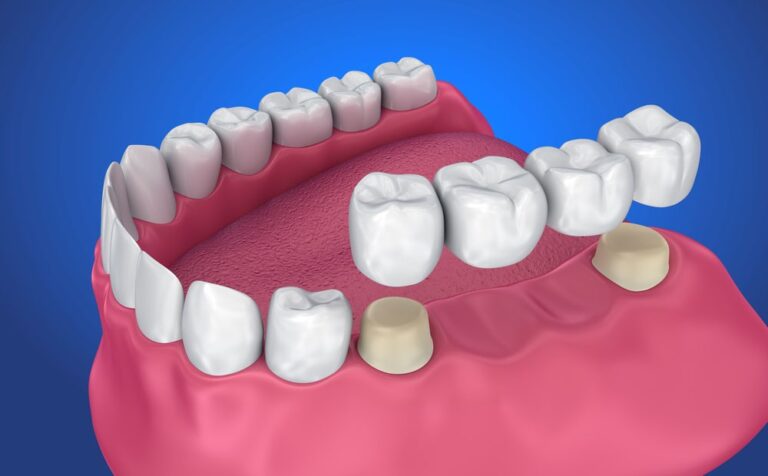Holistic Dentistry: A Natural Approach to Oral Care
In recent years, the field of dentistry has expanded to include a more comprehensive and integrative approach to oral health. Holistic dentistry, also known as biological or alternative dentistry, offers a natural and patient-centered perspective that focuses on the interconnectedness of oral health with overall well-being. This article explores the principles of holistic dentistry, its benefits, and how it differs from traditional dental practices.
What is Holistic Dentistry?
Holistic dentistry is a practice that considers the mouth as a crucial component of the whole body. Unlike conventional dentistry, which primarily focuses on treating oral issues in isolation, holistic dentistry emphasizes the impact of dental treatments on overall health and wellness. Holistic orthodontist louisville ky aim to use biocompatible materials and techniques that support the body’s natural healing processes.
Key Principles of Holistic Dentistry
- Biocompatible Materials: Holistic dentists prioritize the use of materials that are compatible with the body. This means avoiding substances like amalgam fillings, which contain mercury, a known toxin. Instead, they opt for composite resins or ceramic materials that are both safe and effective.
- Minimally Invasive Techniques: Emphasizing prevention and conservation, holistic dentists prefer techniques that minimize damage to healthy tooth structure. For example, they may use ozone therapy to treat cavities or laser treatments for gum issues, reducing the need for more invasive procedures.
- Whole-Body Health: Holistic dentistry acknowledges the connection between oral health and systemic health. Conditions like gum disease and tooth infections can impact heart health, diabetes, and even pregnancy. By addressing oral health concerns in the context of overall well-being, holistic dentists aim to prevent or mitigate systemic health issues.
- Natural Remedies: Many holistic dentists incorporate natural remedies and alternative therapies into their practice. This might include using essential oils for their antimicrobial properties or recommending dietary changes to support oral health.
- Patient Education and Involvement: Holistic dentistry places a strong emphasis on patient education. Dentists work closely with patients to develop personalized care plans and empower them to take an active role in their oral health.
Benefits of Holistic Dentistry
- Reduced Toxic Exposure: By avoiding materials that may release toxins into the body, such as mercury in amalgam fillings, holistic dentistry reduces the risk of potential health issues. This is particularly important for individuals with sensitivities or allergies to certain materials.
- Enhanced Overall Health: Holistic dentists address oral health issues in a way that supports and enhances overall health. For example, treating gum disease with natural anti-inflammatory methods can improve not only oral health but also systemic conditions like cardiovascular disease.
- Personalized Care: Holistic dentistry involves creating customized treatment plans that consider each patient’s unique health profile and preferences. This personalized approach can lead to more effective and satisfactory outcomes.
- Preventive Focus: By emphasizing prevention and minimally invasive techniques, holistic dentistry helps to maintain oral health and prevent more serious issues from developing. Regular check-ups and proactive care contribute to long-term well-being.
- Integration with Natural Therapies: For patients interested in alternative or complementary therapies, holistic dentistry offers a framework for integrating these approaches into their oral care routine. This can include dietary recommendations, herbal supplements, and stress management techniques.
Holistic Dentistry vs. Traditional Dentistry
While both holistic and traditional dentistry aim to maintain and improve oral health, their approaches differ significantly:
- Material Use: Traditional dentistry often uses materials like mercury amalgam for fillings, whereas holistic dentistry avoids these due to potential health risks and prefers biocompatible alternatives.
- Treatment Philosophy: Traditional dentistry typically focuses on treating symptoms and repairing damage, while holistic dentistry emphasizes prevention, conservation, and the overall impact of dental treatments on health.
- Integration with Other Health Practices: Holistic dentists often incorporate natural remedies and lifestyle changes into their care plans, while traditional dentists may focus more on standard dental procedures and treatments.
Finding a Holistic Dentist
If you’re interested in exploring holistic dentistry, it’s important to find a qualified practitioner who aligns with your values and health goals. Look for a dentist who is experienced in holistic practices and willing to discuss treatment options, materials, and their impact on overall health.
When choosing a holistic dentist, consider factors such as:
- Credentials and Experience: Ensure the dentist has proper certification and training in holistic or biological dentistry.
- Patient Reviews: Read reviews and testimonials from other patients to gauge their experience and satisfaction with the dentist’s approach.
- Consultation: Schedule a consultation to discuss your specific needs, ask questions about their methods, and understand how they incorporate holistic principles into their practice.
Conclusion
Holistic dentistry offers a natural and comprehensive approach to oral care, focusing on the health of the entire body rather than just the mouth. By using biocompatible materials, minimally invasive techniques, and integrating natural remedies, holistic dentists aim to enhance overall well-being and prevent systemic health issues. For those interested in a more integrative approach to oral health, holistic dentistry provides a thoughtful and patient-centered alternative to traditional dental practices


















